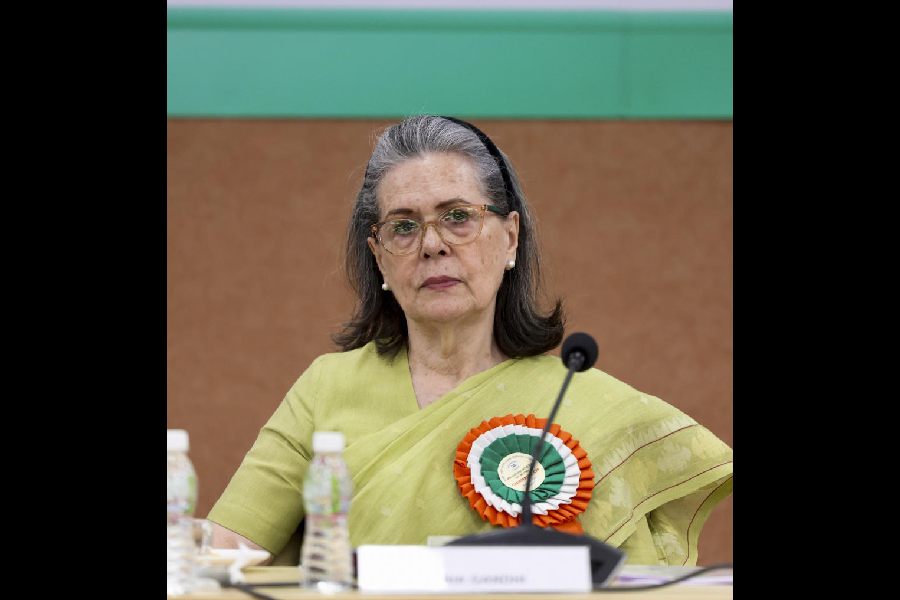The Enforcement Directorate’s National Herald case is “strange and unprecedented” as money laundering could not have happened without any transfer of property, senior advocate Abhishek Manu Singhvi, representing Congress leader Sonia Gandhi, argued before a Delhi court.
Singhvi told special judge Vishal Gogne that Sonia and others wanted to revive Associated Journals Limited (AJL), which published National Herald.
“This is truly a strange case. More than strange. Unprecedented. This is an alleged case of money laundering, without any property, without use or projection of property. There was not an inch of property moved from AJL to Young Indian. No Congress leader gets any property or money. Yet this is called money laundering,” Singhvi said.
Singhvi began his rebuttal after additional solicitor-general S.V. Raju, appearing for the ED on July 3, concluded his arguments on the point of cognisance of the chargesheet filed in the case.
The ED has accused Sonia and Rahul Gandhi, late Congress leaders Motilal Vora and Oscar Fernandes, besides Suman Dubey, Sam Pitroda and private company Young Indian of conspiracy and money laundering in connection with the “fraudulent takeover” of properties valued over ₹2,000 crore belonging to AJL.
The ED has alleged that the Gandhis held the majority 76 per cent shares in Young Indian, which fraudulently usurped assets of AJL in exchange for a ₹90-crore loan.
Singhvi, however, submitted that the exercise was undertaken to make AJL debt-free. “Every company is entitled under law and does, every day, make their companies debt-free by a variety of instruments. So you take away the debt and assign it to another entity. So this company becomes debt-free,” Singhvi said.
He said that Young Indian was a not-for-profit company. “Means it cannot give dividends, it cannot give perks, it cannot give salaries, it cannot give those bonuses. It can give nothing,” the senior lawyer argued. “Why would anyone do money laundering with a not-for-profit company?” he asked.
Questioning the probe agency for filing a complaint after 11 years and a chargesheet recently in the case, Singhvi argued that the ED did nothing for several years and instead picked up a private complaint.
“They are (Gandhis and others) obviously people associated with the Congress. To have the National Herald in a body not associated with the Congress would be worse than having Hamlet without the Prince of Denmark,” he said.
Singhvi argued that the ED sought “criminal cognisance of a draconian act” against Sonia. “There is an 11-year gap between the restructuring of AJL in 2010 and the registration of the Enforcement Case Information Report (ECIR) in 2021. There cannot be a greater hiatus. There is also an eight-year gap in the private complaint (filed by Subramanian Swamy) and the ECIR,” he said.
The hearing will continue on Saturday.

